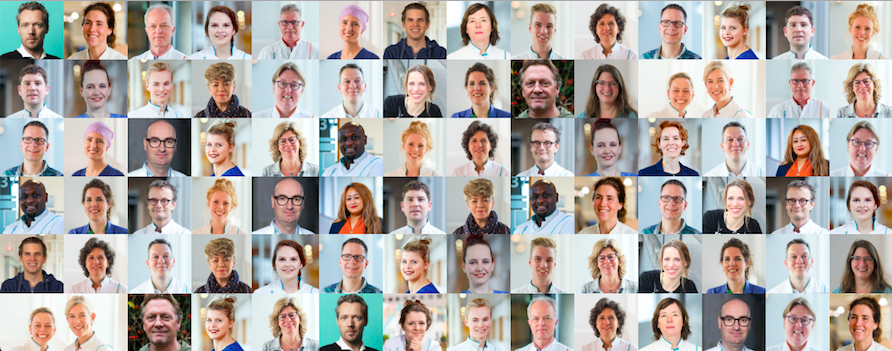PhD candidate 'Deep learning for MRI Diagnosis'
PhD candidate 'Deep learning for MRI Diagnosis'
You cannot apply for this job anymore (deadline was 1 Jan 2018).
Browse the current job offers or choose an item in the top navigation above.
Job description
One million men receive a prostate cancer diagnosis, and three hundred thousand die from prostate cancer each year worldwide. Magnetic Resonance Imaging (MRI) represents a major breakthrough by accurately detecting clinically significant prostate cancers at an early, potentially more curable stage. The same MRI can also be used for better treatment targeting and for avoiding unnecessary systematic biopsies. As a result, the demand for Prostate MRI is rapidly increasing. Unfortunately, reading these multiparametric MRI (mpMRI) exams is difficult and requires substantial expertise. Computers can potentially extract more information from mpMRI, more reliably, and more accurately than human readers. Artificial Intelligence and more specifically Deep Learning is becoming indispensable in helping improve mpMRI diagnostic performance.
This project aims to research deep learning computer-aided diagnostic systems that will demonstrably help clinicians to get the best possible prostate cancer diagnosis from mpMRI. The research includes automatic multi-object segmentation, quantitative imaging biomarkers, and multivariate analysis using a massive MRI database. We closely work with clinicians in all projects and are collecting extensive data sets of expert annotations. State-of-the-art deep learning models will be continuously evaluated and implemented in a clinical prototype for validation and feedback. Results will be presented at scientific meetings and published in journals.
Radboudumc is a clinical expert on prostate MRI and technical expert in the field of prostate AI technology for over 20 years and an early adopter of deep learning in medical imaging. Deep learning is currently the most active research area within machine learning and computer vision, and medical image analysis. DIAG currently has 30 deep learning researchers focused on various medical image analysis topics. A team of scientific programmers is supporting our deep learning research, maintaining a large cluster of computers equipped with high-end GPUs for large-scale experimentation. In this project, Radboudumc collaborates with Siemens Healthineers.
Specifications
- max. 36 hours per week
- Nijmegen View on Google Maps
Requirements
Positions can be filled by either PhD students or postdocs.
You should be a creative and enthusiastic researcher with an MSc/Ph.D. degree in Computer Science, Data Science, Physics, Engineering or Biomedical Sciences or similar, with a clear interest in machine learning, deep learning, image analysis and an affinity with medical applications. Good communication skills and expertise in software development, preferably in Python/C++, are essential. Experience with deep learning is a pre.
You recognise yourself in the Radboud way of working.
Conditions of employment
Fixed-term contract: 3 years.
Scale 10A: max €40814 gross per year at full employment (incl. vacation bonus and end of year payments)
Employer
Radboudumc (university medical center)
Radboudumc strives to be a leading developer of sustainable, innovative and affordable healthcare to improve the health and wellbeing of people and society in the Netherlands and beyond. This is the core of our mission: To have a significant impact on healthcare. To get a better picture of what this entails, check out our strategy film.
Our key strength is medical life-sciences and clinical practice, with an impressive infrastructure comprising state-of-the-art technology platforms and (translational) research facilities. The Radboudumc is therefore uniquely positioned in the emerging Euregio and Dutch healthcare infrastructure to play a leading role in the new healthcare paradigm of prediction, prevention and personalised medicine.
The Radboudumc focuses on scientific health challenges of today, with an eye on emerging diseases of the future.
Read more about what it means to work at Radboudumc and how you can do your part.
Department
The Diagnostic Image Analysis Group (DIAG) is a research division of the Department of Radiology and Nuclear Medicine of the Radboud University Medical Center Nijmegen. Nijmegen is the oldest Dutch city with a rich history and one of the liveliest city centers in the Netherlands. Radboud University has over 17,000 students. Radboud UMC is a leading academic center for medical science, education and health care with over 8,500 staff and 3,000 students.
The focus of the Diagnostic Image Analysis group is the development and validation of novel methods in a broad range of medical imaging applications. Research topics include image analysis, image segmentation, machine learning, and the design of decision support systems. Application areas include neuro, breast, prostate, lung and retina imaging and digital pathology. Key to the success of the group is close cooperation with clinicians. Currently the group consists of around 40 researchers. Check our deep learning paper overview to get an idea of our work in this field.
Specifications
- PhD
- Natural sciences; Health
- max. 36 hours per week
- University graduate
:fill(white)/logos/umcr-en-wide.png)
